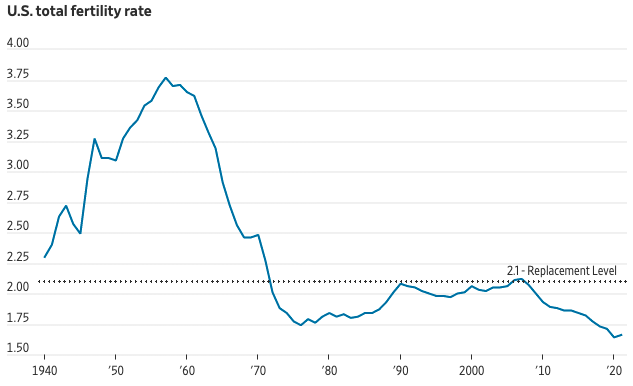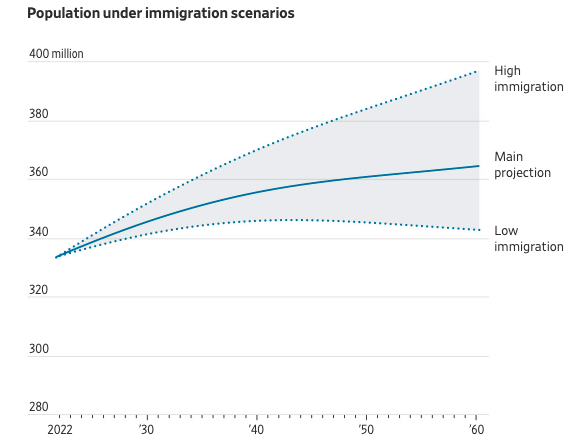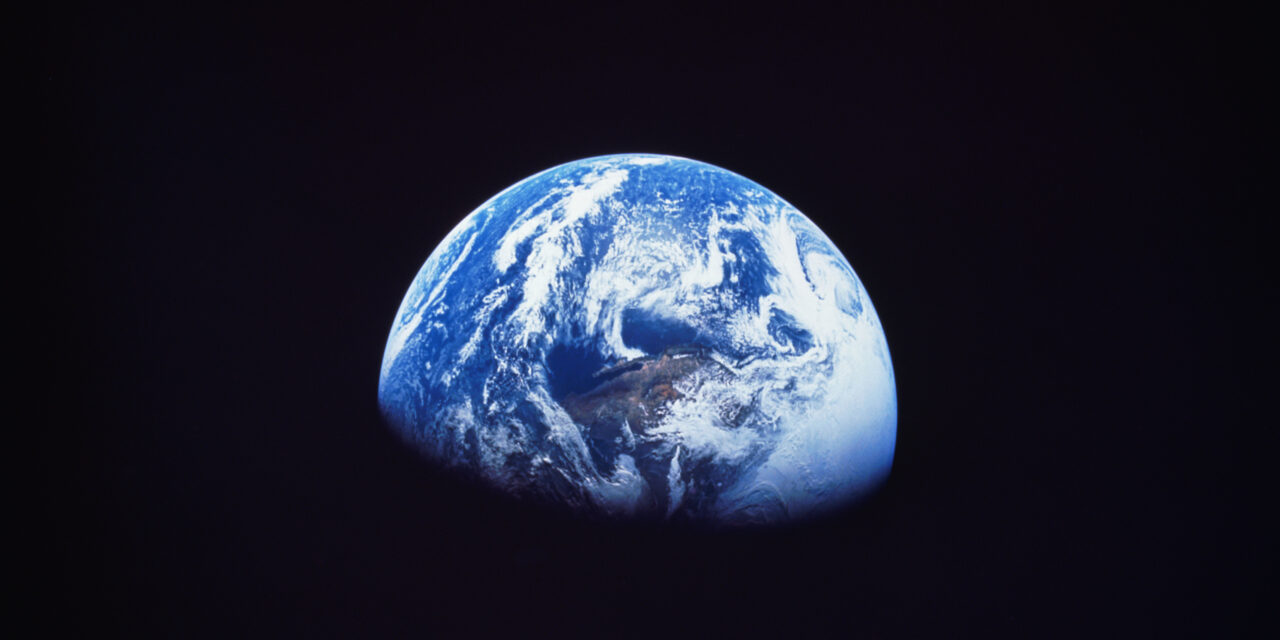Christians believe that every human being is made in the imago dei – the image and likeness of God.
Human beings reflect and bear God’s own likeness; we are stamped with His character. Therefore, our value is infinite, and our worth is immutable.
“So God created man in his own image,
in the image of God he created him;
male and female he created them” (Genesis 1: 27, ESV).
When God created the heavens and the earth, He made us far above all His other creatures – plants, animals and natural formations. He commanded human beings to “be fruitful and multiply” because each new human life is another infinitely valuable person who reflects God and represents His attributes in the created order (Genesis 1:28, ESV).
This reality is, in part, why Christians are pro-life – it is evil to deliberately kill an innocent human being who bears God’s image.
But that is also why Christians are pro-natalist and pro-family. Human beings are good – even if some environmentalists disagree.
This pro-human reality is why the world’s fast-approaching population decline is so concerning.
Many countries around the world – and nearly all the Western world – currently have a fertility rate below the replacement rate of 2.1 births per woman. The replacement rate is the number of children needed per woman in order for each generation to simply replace itself.
In the United States, the fertility rate fell dramatically in the 1960s and 70s, from 3.65 in 1960 to 1.74 in 1976. In part, you can lay the blame for this at the feet of the sexual revolution (ironically), abortion, the advent of “the pill” and the mistaken belief that humans are bad for the environment.
The sexual revolution untied sex from marriage. Now, people could have “free sex” with – thanks to the help of abortion and contraception – no consequences (at least in theory). No babies needed.
The U.S. fertility rate gradually increased back to 2.08 in 1990, where it remained essentially unchanged until 2007 – the year of the Great Recession.
Since then, it has declined nearly every year to the current fertility rate of 1.66 – well below the replacement rate.

Photo Credit: The Wall Street Journal
In their book Empty Planet: The Shock of Global Population Decline, social researcher Darrell Bricker and journalist John Ibbitson note that “among millennials, especially, the fertility rate is very low.”
“Between 2007 and 2012, the birth rate among Americans who came of age after 2000 dropped by 15 percent, to the lowest birth rate ever recorded in the United States: 0.95, less than one baby for every mother,” they write, adding,
The Great Recession was certainly a factor. … But whatever short-term cause convinced millennial women to put off having children, the long-term impact is profound. Millennial American women have, in the main, opted not to have children in their twenties.
This means that these women, when they do have children, will have fewer children than they would have had otherwise, which means the generation produced by the millennials will be smaller than the millennial generation itself.
In the coming decades, the U.S. population will peak sometime later this century, and then most likely begin to decline.
According to the U.S. Census Bureau, “The U.S. population is projected to reach a high of nearly 370 million in 2080 before edging downward to 366 million in 2100,” the agency reported on November 9. The current U.S. population 335 million.
The WSJ reports, “It is the first time that the bureau has projected a population decline as part of its main outlook for the coming decades,” adding,
The only time the U.S. has recorded a population decline was in 1918, when the flu pandemic and deployment abroad of more than one million troops produced a small drop in the estimated population.
When the future of your population looks like the past – at the height of WWI to be exact – that’s a concerning trend to say the least.
However, the only reason the U.S. population will not fall more dramatically by 2100 is due to immigration.
The Census Bureau notes that immigration will be “the largest contributor to population growth” this millennia.

Photo Credit: The Wall Street Journal
If the U.S. adopted a zero-immigration policy,
Population declines would start in 2024 in the complete absence of foreign-born immigration. The population in this scenario is projected to be 226 million in 2100, roughly 107 million lower than the 2022 estimate.
However, immigration cannot create new persons – it can only relocate them.
And if the world as a whole is to avoid an unalterable population decline starting this century, we’re going to need new persons.
As Ibbitson and Bricker write,
The great defining event of the twenty-first century – one of the great defining events in human history – will occur in three decades, give or take, when the global population starts to decline.
Once that decline begins, it will never end.
Once population decline sets in, social upheaval will likely become the new norm.
Social policy programs – like Medicare and Social Security – will be strained into insolvency due to an aging population. Invention and innovation will slow, due to a lack of creative, young minds. Empty schools will close. Playgrounds will be silent. Our economy will stagnate and shrink. And countries experiencing the worst effects of population decline – i.e., China – may become more aggressive and territorial.
This is what the near future holds.
If, that is, we continue to ignore God’s first command to humankind: “Be fruitful and multiply.”
As a pro-family ministry, Focus on the Family recognizes the tremendous value of every person, every child and every marriage. To strengthen your family, check out our marriage and parenting resources.
You can also check out Focus on the Family’s Option Ultrasound program here.
Related articles and resources:
Focus on the Family’s Option Ultrasound
The New York Times Discovers the World’s Coming Population Collapse
China Fertility Rate Falls to Record Low Amid Beginning of Global Population Crisis
China Launches Largest Fertility Initiative in Human History
No, The World Does Not Have Too Many People. It Has Too Few.
Births in Japan Fall to Record Low Amid Catastrophic Population Decline, Foretelling World’s Future
Photo from Getty Images.






